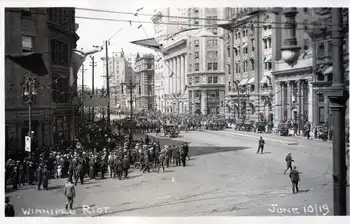Two electric firms petition to cut rates: request highlights risk that prices pose for ex-monopolies
WTU Retail Energy LP, which serves areas of West Texas, and CPL Retail Energy LP, which serves South Texas, announced recently that they had filed to lower rates in their areas.
Texas legislators are considering whether to force all former utility monopolies to cut retail prices.
"We believe it's the right thing to do for competition; it's the right thing to do for our customers," said Phil Tonge, president of Direct Energy, which owns WTU and CPL.
Mr. Tonge said he began planning the price cuts before the Texas Legislature's special session, but added: "What we have done in essence, is quite similar to what those bills would accomplish."
The price filings, which don't affect North Texas customers, highlight a couple of risks that former utility monopolies, like Dallas-based TXU Energy, face this summer.
Frustrated customers could defect to competing electricity providers, and frustrated legislators could change the process of deregulation, scheduled to conclude at the end of the year.
WTU and CPL technically proposed to apply a discount for current customers to the price to beat, which is a rate cap for the former monopolies. They stopped short of asking to lower the price to beat.
Both companies had already applied a discount as part of a prior deal with regulators. Now, they want to nearly double that discount.
WTU customers would pay 16.5 cents per kilowatt hour, instead of the 19.1-cent price to beat, and CPL customers would pay 16.1 cents, instead of 18.4-cent price to beat.
In North Texas, TXU Energy's price to beat is 15 cents.
Former monopolies may file with regulators to adjust the price to beat for their regions twice a year.
There's little incentive to ask to for a cut because the price to beat was meant to act as a cap. Former monopolies may offer cheaper pricing plans, and competitors may charge any price they want.
The price to beat is calculated using a 12-month market average for natural gas prices. That price spiked to around $12 per million British thermal units during the hurricanes last year.
About that time, all of the former electricity monopolies filed for price-to-beat rate increases to reflect higher gas prices.
Since then, natural gas prices have fallen, but the price to beat hasn't budged.
A bill proposed by Rep. Sylvester Turner, D-Houston, would reset the price to beat using current natural gas prices.
And WTU and CPL based their discounts on the current price. The companies will raise prices a bit in the autumn, when natural gas rates usually increase.
The price-to-beat mechanism will disappear Jan. 1, when the market fully deregulates.
Other electricity providers have scrambled to address consumer complaints about prices. TXU Energy introduced several pricing plans that are cheaper than the price to beat, including one that tracks natural gas prices. For most of those plans, customers must sign multiple-year contracts.
Related News

Minnesota bill mandating 100% carbon-free electricity by 2040
SAINT PAUL - Minnesota Gov. Tim Walz, D, is expected to soon sign a bill requiring utilities in the state to provide electricity from 100% carbon-free sources by 2040. The bill also calls for utilities to generate at least 55% of their electricity from renewable energy sources by 2035.
Electricity generated from landfill gas and anaerobic digestion are named as approved renewable energy technologies, but electricity generated from incinerators operating in “environmental justice areas” will not be counted toward the goal. Wind, solar, and certain hydropower and hydrogen energy sources are also considered renewable in the bill.
The bill defines EJ areas…





